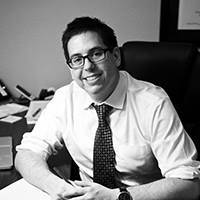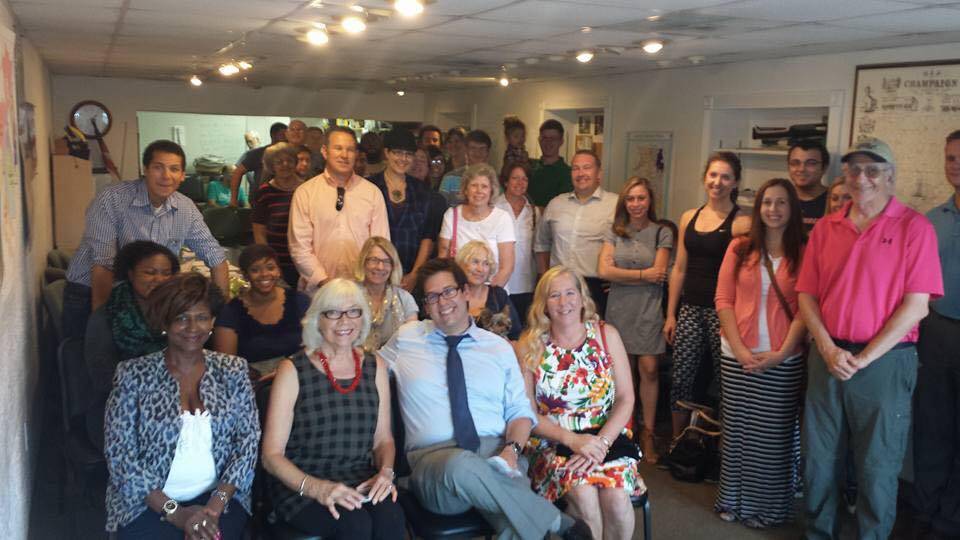Attorney Matt Duco announced on Sunday that he is running for Champaign County Recorder.
Duco has lived in Champaign-Urbana since 2001, when he moved here to attend the University of Illinois. He currently works for Spiros Law, P.C. and is an active member of the Champaign County Young Democrats. He has been endorsed by a number of state and local politicians, including Mike Frerichs, Scott Bennett, Josh Hartke, and Laurel Prussing. The current recorder, Barb Frasca, is not seeking re-election.
Smile Politely: What does the county cecorder do?
Duco: The main function of the recorder is to keep a permanent record of documents related to property ownership — records like land transactions, maps, surveys, and plots.
The county recorder is also on the front line in terms of combating property fraud, which is the number-one white-collar crime and the fastest growing crime in the U.S. Property fraud can affect everyday property transactions, and the county recorder can help to prevent it.
 There are some other neat aspects of the office. Veterans can file their discharge paperwork at the county recorder’s office so they have a permanent record of their honorable discharge. Veterans get benefits for life with proof of honorable discharge, but if they ever lose their paperwork, it can take a long time to receive a new copy. By filing with the recorder’s office, veterans can have a permanent copy here locally and not have to deal with Veteran’s Affairs. The recorder also works with the Department of Children and Family Services to follow up with people who haven’t been paying child support. The recorder can put out a lien on a person’s property, if it comes to that point.
There are some other neat aspects of the office. Veterans can file their discharge paperwork at the county recorder’s office so they have a permanent record of their honorable discharge. Veterans get benefits for life with proof of honorable discharge, but if they ever lose their paperwork, it can take a long time to receive a new copy. By filing with the recorder’s office, veterans can have a permanent copy here locally and not have to deal with Veteran’s Affairs. The recorder also works with the Department of Children and Family Services to follow up with people who haven’t been paying child support. The recorder can put out a lien on a person’s property, if it comes to that point.
The county recorder’s office serves homeowners, veterans, and single parents through these different avenues. I realize that it sounds like a boring office at first, but the more I looked into it, the more I realized it serves people who need it.
SP: Tell me about your professional background and how it has prepared you for the role of county recorder.
Duco: I have been an attorney for seven years. I’ve drafted and reviewed the kinds of documents that are filed at the recorders office. The first five years I practiced, I worked at a firm where I represented victims of financial and property fraud to help them recoup losses and navigate legal documents associated with fraud, such as victim impact statements.
In terms of public service, I currently serve on the executive board of NAACP. I am the voter empowerment committee chair. I also do work with St. Baldrick’s Foundation, an organization that raises money for childhood cancer research. We put on an event here locally every year. Only 4% of national cancer research dollars go to researching childhood cancers, so the work of that foundation is very important.
When I graduated from University of Illinois, I worked for Naomi Jakobsson, so I am familiar with how the General Assembly works. The Assembly has recently passed some new laws that provide stronger protections against property fraud, and I would like to see them implemented here to improve the abilities of the recorder’s office.
SP: What specifically would you do to improve the services offered by the county recorder’s office?
Duco: One specific thing I would do is put in place a property fraud review process. There’s a new law that was passed that allows the recorder’s office to do this, but it hasn’t been implemented here yet. Essentially, this law allows the recorders office to work with the homeowner to get a judicial ruling in cases of property fraud. Currently, the recorder’s office has to record and file everything, even if a document is fraudulent. The burden is on the homeowners to pay fees and court costs in order clear up property titles, even if they didn’t do anything wrong. The new process would allow the recorder’s office to take a more active role in helping the homeowner. Similar processes have already been implemented in Cook and Vermilion counties, and I think it would work here.
Also, as county recorder, I would also advocate for changes to the current pay scale of county politicians. Their salaries have gone up 51% since the start of the recession in 2008. In that same timeframe, the median wage in this community has gone up less than 4%. We’ve also seen budget cuts and layoffs in this county. I believe that this is a job of public service. I want to make sure that the compensation for county recorder and other county politicians isn’t coming at the expense of essential services for people in this community.
The county board sets the salary for county politicians, and I don’t think they should raise it. I wouldn’t take a raise. In fact, I think salaries should be lowered. I am willing to work with county board members to do that and come up with a plan. If lowering salaries can save someone’s job at the county or save services from being cut, I think that’s a good thing, because there is room for salaries to come down. And not just for the recorder, but for all countywide politicians. They all earn over $90,000. I do think they should be paid well, but that’s on the high side, especially when essential services are being cut.
As an example, last night, the county board voted not to continue the Access Initiative, which is an anti-violence program for at-risk minority youths. The same Republican county board members who said the county didn’t have the money to continue the program had no problem finding an extra $800,000 since the start of the 2008 recession to increase the salaries of politicians in this county, even though our community is facing a gun violence epidemic. I don’t think it’s right to cut programs that help the county’s most vulnerable citizens in order to put more money in the pockets of politicians.

SP: How would you describe your political philosophy?
Duco: I identify as a progressive democrat. I believe in self-governance. I think we ultimately live in a self-governing society. I know that the way that politics and the government work can turn people off, but it’s us who elect people in public offices. I believe that the role of government is to serve people and solve problems that can’t be solved in the marketplace.
Top photo: Matt Duco with Patricia Avery, Naomi Jakobsson, and his mother, Cathy Duco.








